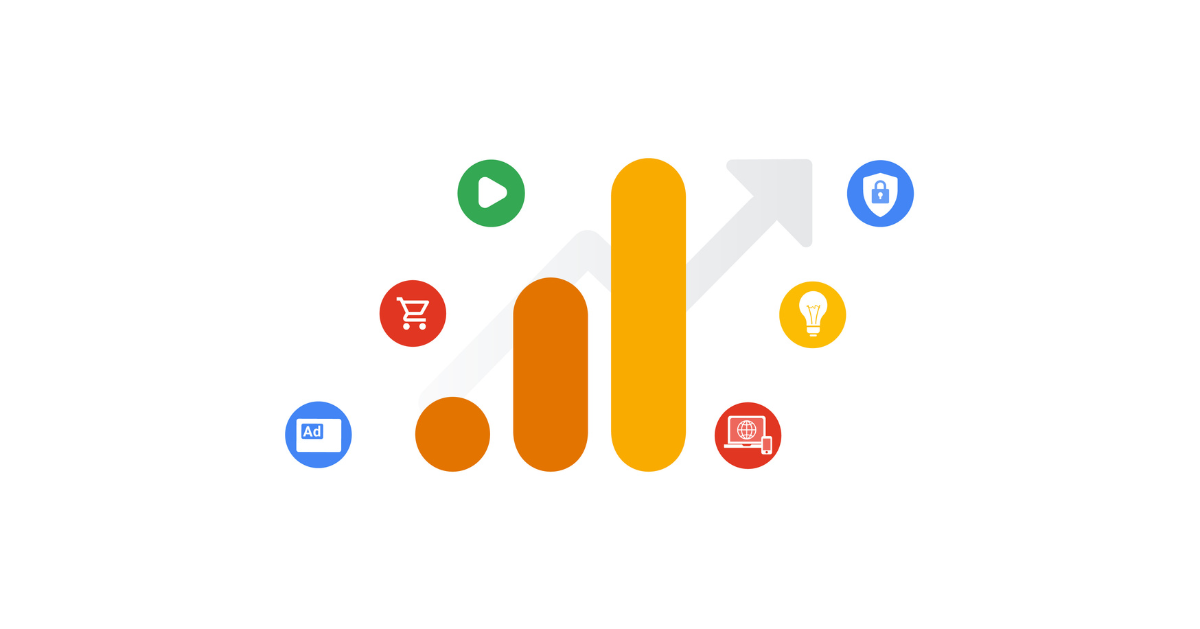Google Analytics has long been the go-to platform for businesses to gather valuable insights about their website’s performance. However, a significant transformation is underway with the introduction of Google Analytics 4 (GA4). In this blog post, we dive into everything you need to know about GA4 before Universal Analytics officially sunsets in July 2023. We will explore the key features, benefits, and implementation considerations of GA4, empowering you to harness its power and make informed decisions for your business’s digital success.
What is GA4?
GA4 is the latest iteration of Google Analytics, designed to offer a more comprehensive and customer-centric approach to data analysis. It introduces a set of advanced features and enhancements, including improved tracking capabilities, machine learning-driven insights, and enhanced cross-platform measurement.
The Benefits of GA4
Enhanced Cross-Platform Tracking: GA4 provides a unified view of user interactions across multiple platforms and devices, such as websites, mobile apps, and offline channels. This holistic perspective enables businesses to understand user behavior more accurately and optimize their customer journey accordingly.
Customer-Centric Analysis: GA4 focuses on customer-centric metrics, emphasizing the importance of understanding user behavior and engagement throughout the entire customer lifecycle. It introduces new metrics like Engagement Rate, User Lifetime Value, and Event-based Conversions, enabling businesses to gain deeper insights into customer interactions.
AI-Driven Insights: GA4 leverages machine learning algorithms to automatically generate valuable insights, such as predictive metrics, churn probability, and revenue forecasting. These AI-driven insights empower businesses to make data-backed decisions and drive actionable strategies.
Privacy and Compliance: GA4 incorporates privacy-centric features and aligns with evolving data privacy regulations, such as the General Data Protection Regulation (GDPR) and California Consumer Privacy Act (CCPA). It provides businesses with the necessary tools to respect user privacy while still gathering valuable data.
Implementation Considerations for GA4:
1. Transitioning from Universal Analytics (UA): If you are currently using Universal Analytics, it is essential to plan and execute a smooth transition to GA4 before July 2023. This involves setting up a new GA4 property, updating tracking codes, and mapping existing data to the new data model.
2. Event Tracking and Enhanced Measurement: Take advantage of GA4’s event-based model for tracking user interactions and key events on your website or app. Set up custom events, define conversions, and implement enhanced measurement features to capture comprehensive data and gain deeper insights.
3. Data Integrity: Ensure that your GA4 implementation follows best practices to maintain data integrity. Implement data filters, exclude internal traffic, and configure proper tracking settings to ensure accurate and reliable data collection.
4. Customization and Reporting: Explore GA4’s customization options, such as creating custom dimensions, segments, and audiences. Utilize the new Analysis Hub to build custom reports, explore data visualizations, and generate actionable insights.
As the deadline for transitioning to GA4 approaches, understanding its benefits and implementation considerations is crucial for businesses seeking to harness the power of data analytics. With GA4’s advanced features, customer-centric focus, and AI-driven insights, you can unlock valuable insights and make informed decisions. Stay ahead of the curve by embracing GA4 and positioning your business for digital success in the evolving landscape of data analytics. If you’re not yet prepared for the transition, reach out to the team at Extension Marketing as soon as possible to avoid any data gaps!



